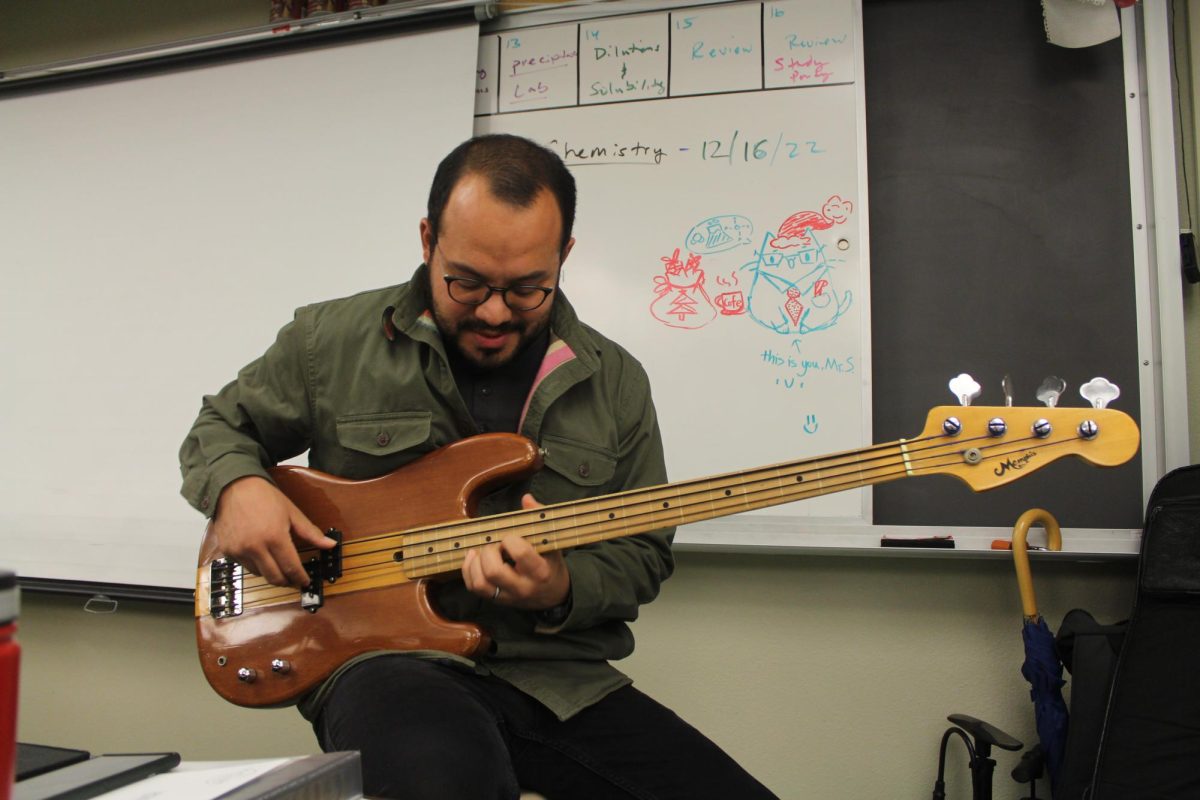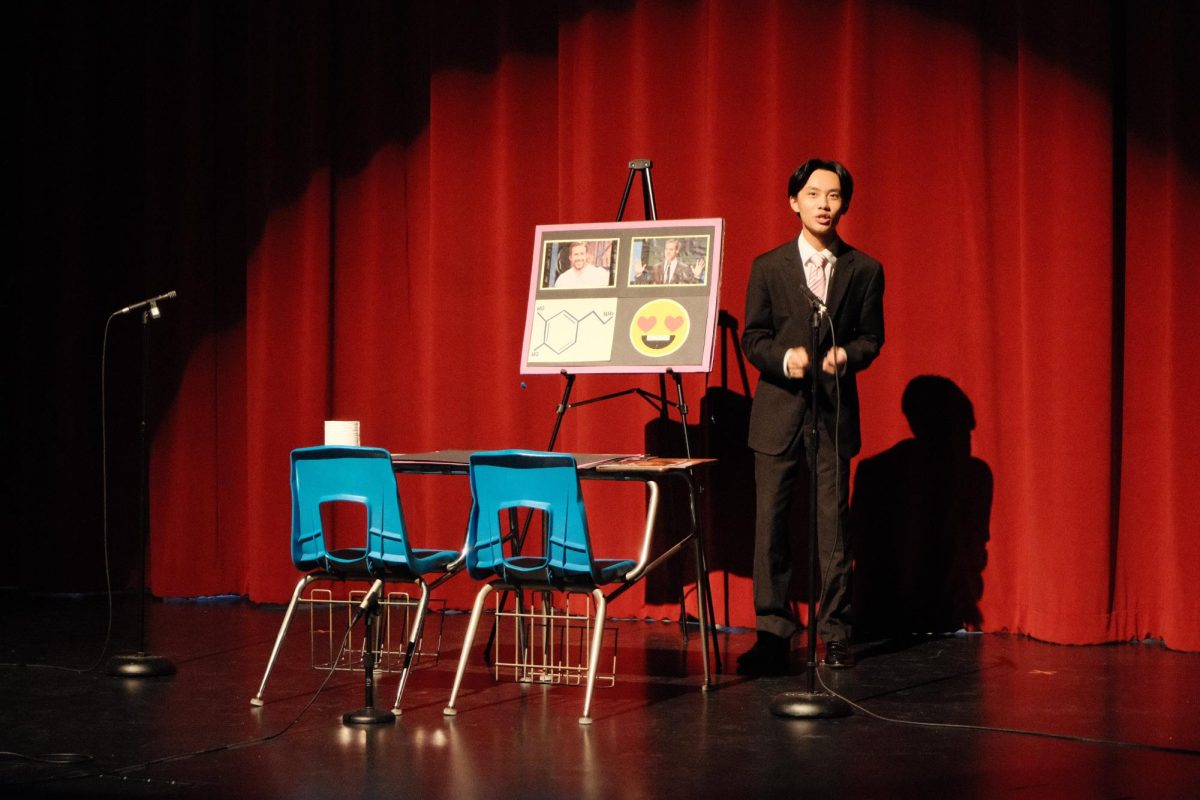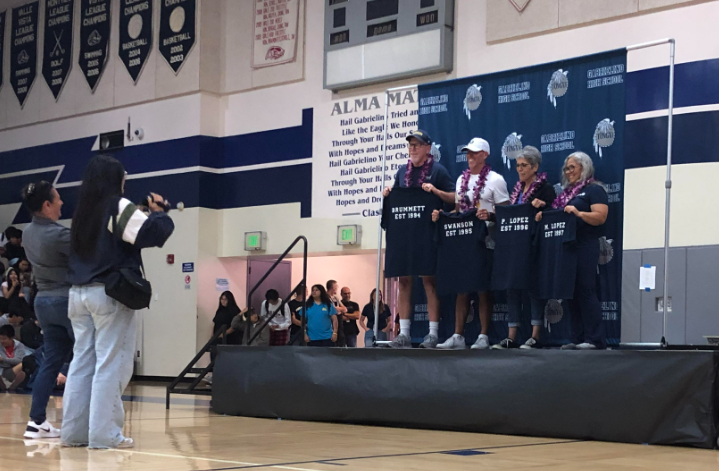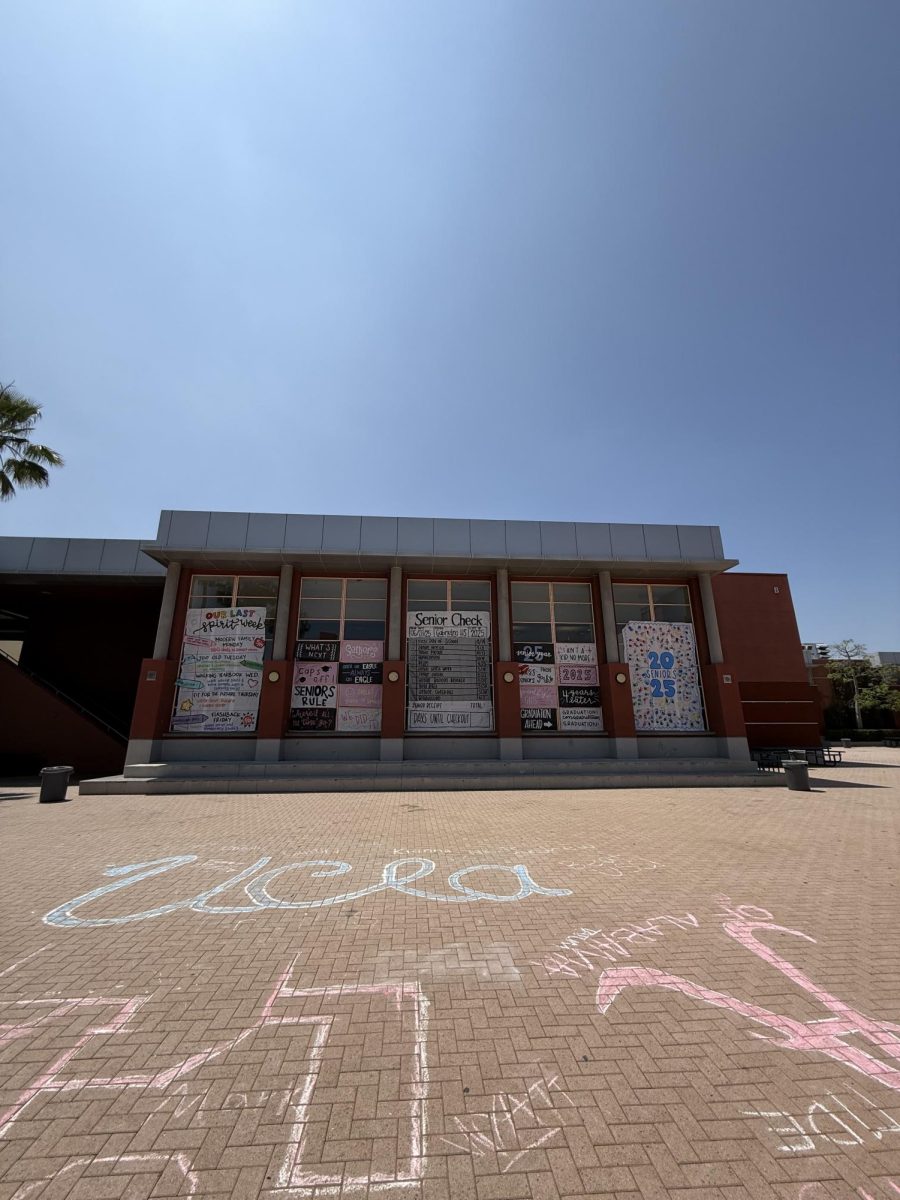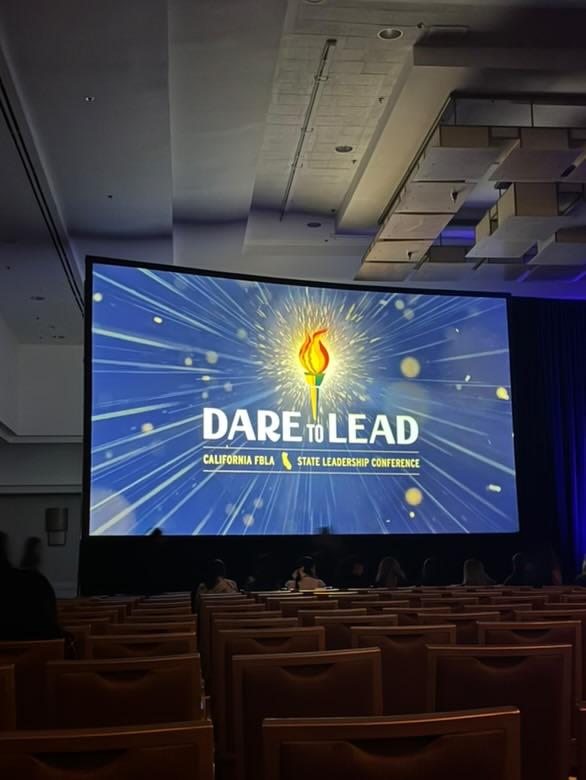By Jordan Hum | Copy Editor
When choosing an instrument in high school, Salcedo noticed how most people played the drums or guitar. Not wanting to follow in the footsteps of his peers and taking into account that his parents thought the drums were too loud, Salcedo decided on the bass.
Unlike most professional musicians, Salcedo was largely self-taught until college. While he was trained in basic note reading and theory from his time playing saxophone, he learned to play bass through books, DVDs, and VHS, as “YouTube musical instruction wasn’t really happening quite yet.”
While studying science at Cal State Long Beach, Salcedo completed enough credits to minor in music, an experience that he calls a “big rude awakening.” While Salcedo acknowledged that he was a decent bass player, he admitted the ensembles he played in were a “different level,” which only motivated him to become better.
“Every time we had a class, I would leave super defeated, but also hopeful because I know I can do better, and I got to put the time in,” he said proudly. “It was good but also humbling.”
When Salcedo entered the Los Angles College of Music, it was a “dream come true,” as he now had the time and resources to dedicate himself to his passion. By picking up good study habits, he had more time to perfect his craft and network with other musicians.
“Real quickly, I got my reading together and learned to play jazz a lot better,” stated Salcedo. “Once I got done with school, a couple of other guys that I was close with, we started playing a pretty regular jazz gig in Pasadena and around town.”
Another benefit of attending a music school were the high standards that were expected. These greater expectations contributed to his success.
“You can be excellent anywhere you go, but when you have really high-quality staff pushing you to be the best and always pushing you to the next level, it definitely makes a huge difference,” Salcedo stated.
After college, Salcedo played in gigs at churches and conferences along with musicians he had met through school. One of his biggest shows was for a large organization named Intervarsity, where he performed for a crowd of 20,000.
As he toured and played in different cities, Salcedo came to realize that “the whole catching a break thing is largely a myth.” Salcedo typically played when a singer needed background music, which sometimes felt artistically constricting. This, along with the financial implications of being a musician, ultimately led to his career as a teacher.
“You do five or six gigs a week, and you’re making 150 per gig which is about $900 per week,” Salcedo calculated. “I mean, don’t get me wrong, you can get by on that. But that’s a hard line unless you’re teaching or doing something in the day.”
The change in career path has not deterred him from his 20-year passion, as the chemistry teacher still enjoys playing. Though balancing work and family has made him a “weekend warrior,” only doing occasional gigs on the weekend, he will always have a soft spot for bass.
“For me, being a musician, I’ll play for free any day,” said Salcedo, “I love playing just for the joy and the art of music.”

